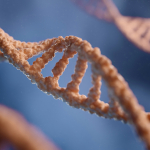Pallister-Killian Syndrome Awareness Day Date in the current year: December 4, 2026
 Pallister-Killian Syndrome Awareness Day (PKS Awareness Day) is observed annually on December 4. It was launched by the non-profit organization PKS Kids that helps children affected by this rare genetic disorder and their families.
Pallister-Killian Syndrome Awareness Day (PKS Awareness Day) is observed annually on December 4. It was launched by the non-profit organization PKS Kids that helps children affected by this rare genetic disorder and their families.Pallister-Killian syndrome (PKS), also known as Pallister-Killian mosaic syndrome, tetrasomy 12p mosaicism, or Pallister aneuploidy syndrome, occurs when a person has four copies of the short arm (p) of chromosome 12 instead of the normal two. This change happens spontaneously (de novo) for no apparent reason. The syndrome is named after Dr. Philip Pallister, who first described it in 1977, and Wolfgang Killian, who researched it further with Maria Teschler-Nicola.
PKS causes multiple birth defects and health problems. Patients with PKS usually have characteristic facial features, including a high forehead, a broad nasal bridge, widely spaced eyes, low-set ears, a thin upper lip, and a high, arched palate. Other physical characteristics may include sparse scalp hair at birth, irregular skin pigmentation, skeletal abnormalities (e.g., extra fingers or toes, short limbs, stiff joints), short stature, and extra nipples.
Infants with PKS typically have severe hypotonia (very low muscle tone), which can cause breathing and feeding difficulties. Most individuals with the syndrome experience significant developmental delays and intellectual disability. Many have limited speech or are unable to speak. Other common characteristics include congenital diaphragmatic hernia, congenital heart defects, seizures, hearing and vision impairment, and autonomic nervous system dysfunctions.
Since PKS is mosaic, meaning not all cells have the extra chromosome, symptoms can vary greatly from one patient to another. Consequently, some individuals have multiple congenital anomalies and serious health problems, while others are less severely affected.
PKS is an extremely rare disorder, with fewer than 500 diagnosed cases. However, its incidence may be much higher than estimated because PKS is often misdiagnosed: its characteristics are similar to those of many other genetic disorders, and not all doctors are aware of it because they have never encountered it before. Additionally, mosaicism renders some common diagnostic tests unreliable.
Like most rare genetic disorders, PKS has no cure or specific treatment. Management focuses on supportive care and addressing specific symptoms, such as developmental and intellectual delays, low muscle tone, cardiovascular problems, vision and hearing impairment, and seizures. Life expectancy depends on symptom severity and quality of care. Some patients die in infancy, while others live into their 30s or 40s.
PKS Kids established Pallister-Killian Syndrome Awareness Day to raise awareness of this disorder, support affected families, and promote further research. The day is celebrated on December 4 (12/4), referencing the four copies of chromosome 12. You can get involved by learning more about PKS, donating to PKS Kids or other organizations that help affected families or fund research, and spreading the word on social media.
- Category
- International Observances
- Tags
- Pallister-Killian Syndrome Awareness Day, PKS Awareness Day, international observances, awareness days, rare diseases